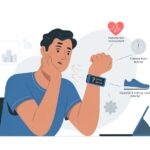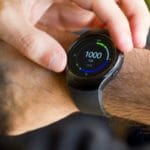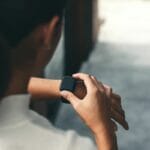We all know the importance of keeping with a balanced diet and exercising regularly.
Luckily, with modern technology, we’re more equipped than ever before to keep an accurate tally of our calorie intake and our exercise regime.
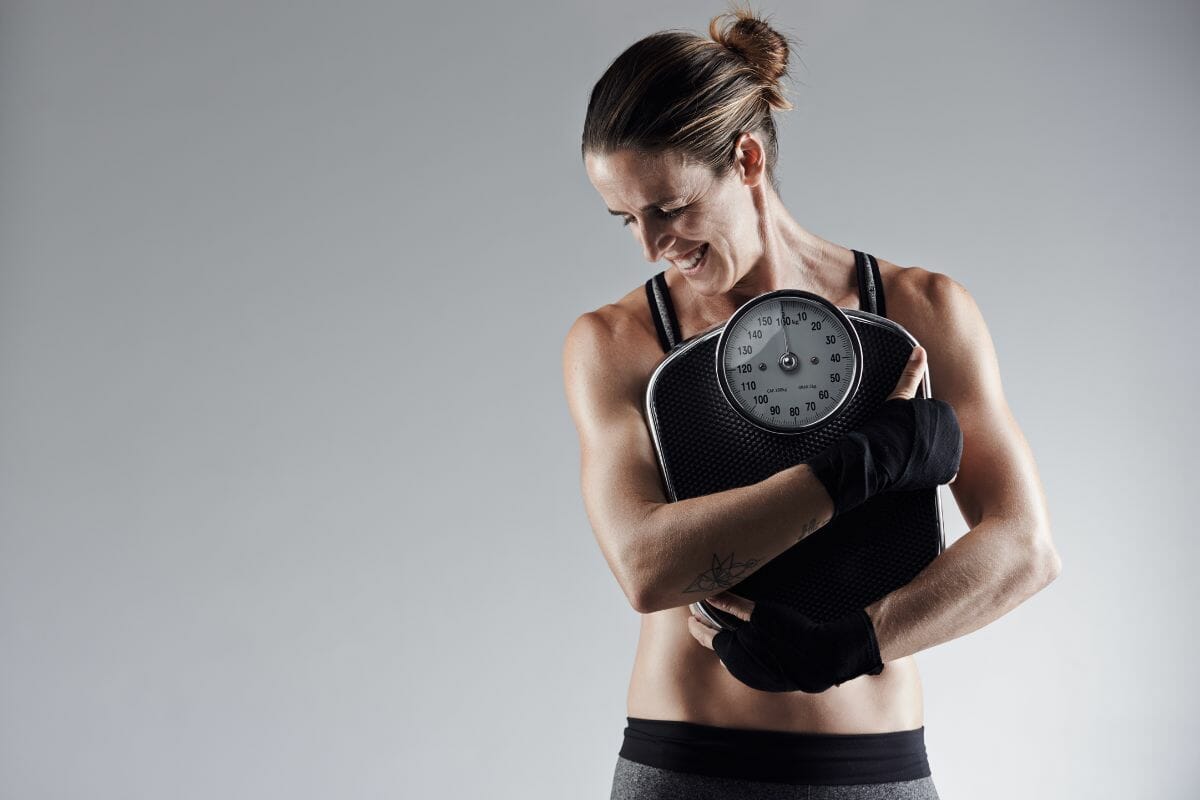
With Fitbit, you can keep track of your calorie burn when you exercise – but how accurate is it exactly?
Well, a 2021 analysis found that Fitbits on average have an accuracy level of 0.64, with a perfect score being 1.
So, typically it’s not very accurate – but you’ll need to know a lot more than this.
Luckily, I’ve written this handy guide that explains everything you need to know about Fitbits and their accuracy.
Read on to learn more.
What Is A Fitbit And How Does It Work?
Fitbits are wearable devices that aim to provide the wearer accurate health data, along with some basic features that you would find on a watch.
As a result of this, they became very popular around the world, and modern smartwatches mirrored some of their features.
To begin, Fitbit needs to integrate some of your personal data, such as your height, weight, age and gender. By receiving this data, it helps it to estimate your BMR (basal metabolic rate).
This rate is essentially the amount of energy you burn in order to survive – this is through breathing, your heart beating etc – all of these processes require energy, which you get through food and drink in the form of its measurement; calories.
After all of this data has been collected by Fitbit, it will then use other data it receives, such as your heart rate, to estimate how many calories you burn during exercise.
At this point, it’s critical that I emphasize the importance of the word estimate.
In no way is this technology 100% accurate, but as consumers, we always want our equipment to be useful and as accurate as possible.
How Accurate Is Fitbit’s Calorie Burn?
The problem is, Fitbit can never give you a measurement of your caloric burn value. There is currently only one way you can measure this, and the accuracy of this system is questionable alone.
This is through laboratory gas analysis systems, and this technology and measurement system cannot be replicated through a Fitbit.
Does this mean that Fitbit is incredibly inaccurate though? Well, it depends.
As I mentioned earlier, the recent analysis found that Fitbit’s accuracy, which is worked out by using a number of Fitbit devices and analyzing associated data, is at 0.64.
What this means is that when associated with other Fitbit device data, with a perfect association score being 1, on average the score was just over half of this.
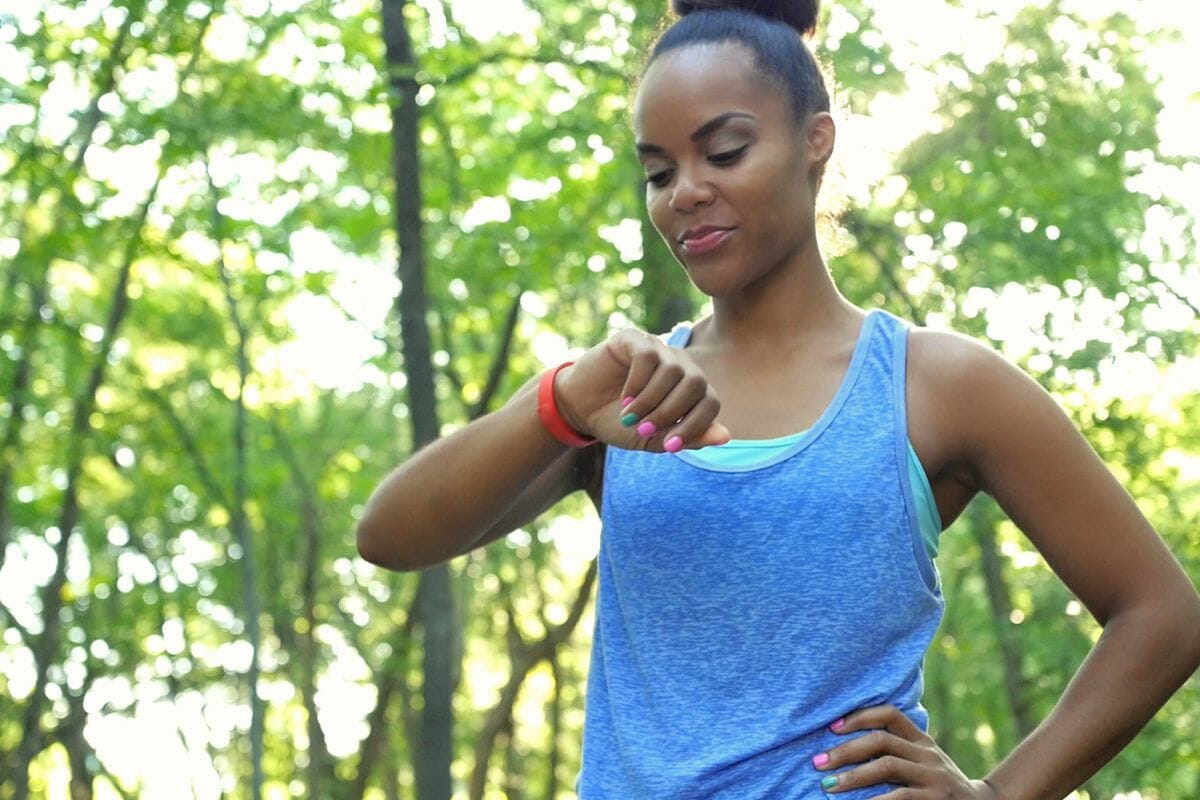
Data Analysis: Cardio Training
The analysis examined two different types of training. The first being cardiovascular training and the second being weight training.
From the data, the researchers found that Fitbit’s accuracy showed the following:
- Calories burnt were overestimated between 26 and 61 percent while walking
- Calories burnt were underestimated between 37 and 59 percent while cycling
- Calories burnt were overestimated between 25 and 39 percent while jogging
Data Analysis: Weight Training
The analysis when observing the weight training accuracy showed that calories burnt were overestimated between 12 and 48 percent.
However, it’s not clear what weight training was being carried out.
Should You Use Fitbit To Measure Calories?
In short, you shouldn’t use any device to get an accurate reading of your calorie burn. However, this doesn’t mean you should ignore all the data either.
When asking if you should use Fitbit to measure your calories, I’ll look at this on two sides.
Yes
I’ll start by exploring the case for why you should use Fitbit to measure calories.
When it comes to any form of fitness training, it’s always going to be useful to have data, albeit it isn’t 100% accurate.
I’ve always found that people who are looking to lose weight usually do well with Fitbit devices to measure their caloric intake and burn.
It keeps them focused on their goals and generally they will lose weight if they stick to an exercise plan and good diet.
Second, using Fitbit to measure calories is a great way to measure how much you’ve been exercising.
With our busy world, it is not unheard of for people to forget how much they have been exercising or moving in general.
The latter is more about step tracking, but the premise is the same for a device such as Fitbit.
No
Now, I must admit that I’m leaning more towards this argument.
As we have seen, Fitbit calorie burn is not accurate and it’s very difficult to know exactly how accurate it is.
As a result, some people might live their life in a certain way, such as consuming more calories, as they believe they will still be in a caloric deficit.
Not only this, but some people may need to follow medical advice, and will need more accurate data to do so.
Essentially, the biggest problem I see is false hope. As the data suggests, calories burnt can be overestimated by an egregious amount – and this can be significant for someone’s health.
However, does this mean you should never use a Fitbit? Of course not. It can be a very handy wearable device and it’s very fashionable too.
The biggest advantage it has is that it can help get people moving more to track their data – despite its accuracy.
The Bottom Line
While Fitbit’s calorie burn is not accurate and it’s pretty difficult to assess how accurate it really is, this does not necessarily mean that the device has no use.
As I just mentioned, the biggest advantage of it is the way it psychologically gets people to exercise more, and if nothing else – this can only be considered a good thing.

